May 2020: Olive Tree

Volume V/Issue 2/May 2020


From The Editorial Desk
Words Of Encouragement During These Strange Days
Suffering is part of life—and it has a purpose.
C.S. Lewis once wrote in a letter to a good friend, “I could well believe that it is God’s intention, since we have refused milder remedies, to compel us into unity, by persecution even and hardship. Satan is without doubt nothing else than a hammer in the hand of a benevolent and severe God. For all, either willingly or unwillingly, do the will of God: Judas and Satan as tools or instruments, John and Peter as sons.”
We are all born into a world that is facing the consequences of sin, and we ourselves are not exempt. God is not the author of suffering and evil, but He does allow it. The question we ask ourselves is, Why?
Remember the waters of Marah from the Old Testament? When the people of God came to the waters of Marah, they were dying of thirst and yet the water was bitter. But when God told Moses to put the piece of wood—representing Christ and the cross—into the water, it instantly became sweet! When the Lord enters into our suffering, we are changed from the inside and He helps us to see the situation from His perspective.
We learn that lesson again and again as we look at the lives of people like Joseph, Daniel, Moses and so many others.
God uses our suffering to make us more like Him and to make us a blessing to others.
In his popular book, God in the Dock, C.S. Lewis says, “If we find man giving pleasure it is for us to prove (if we criticize him) that his action is wrong. But if we find a man inflicting pain it is for him to prove that his action is right. If he cannot, he is a wicked man.”
What Lewis is saying is that since God is good (His very nature is love), His actions also have to be good—even if those actions cause pain. Because of this, we must conclude that suffering has some beneficial meaning and purpose for us.
Suffering is like a piece of metal that is put into the fire. To an untrained eye, through the process of heating and melting it appears as though the metal is being destroyed. Yet in the end, it comes out as a most precious and beautiful creation. Similarly, suffering has the unique ability to change us on the inside. Kindness, sympathy and empathy for others can all be formed in the furnace of suffering.
St. Paul echoes this sentiment to the Romans when he talks with joy about the suffering he was enduring for the sake of the Gospel and the elect.
Think about the massive problems that Joseph faced in his life. Little did he know that the trial he was enduring would become the training ground for his future. How appropriate when he later says to his brothers, “What you intended for evil against me, God turned around and used it for good!” Over and over again we see this repeated in Scripture.
This is a different season.
God is a God of seasons. He gave us six days for working and set apart a seventh day for our rest. Yet we are so often disobedient in this area and instead just keep on going and going. Stepping away to pause and be silent is a difficult instruction for us to follow.
But look at Moses. With a massive number of people depending on him, surely the greatest need for him was to physically be with them and to lead them each day. But God essentially said to him, “Leave them there and come up here alone with Me.” For the next 40 days, Moses would spend time with God. At the end, when he finally comes down, he brings with him the answer to their problems: The Ten Commandments, which becomes the guide for future generations to follow.
Maybe this season of “isolation” during the coronavirus can be a time for us to be silent and quiet—a critical part of our spiritual journey. Let us be deliberate to change our mindsets to see this not as a massive inconvenience, but rather as God allowing us the gift of time to pray and meditate and spend time in solitude with Him.
Seek to be a light in the world.
If you look around, you’ll easily recognize we are surrounded by a feeling of darkness, fear and emotional distress. Look in the eyes of your neighbor and the people you pass by in the hallways each day. Look at the suffering they are carrying with them. How are we to respond?
Scripture tells us when Jesus saw the multitudes, He was moved with compassion (Matthew 9:36).
Yes, it is dark around us. But Jesus said we are the light of the world (Matthew 5:14). And it’s only in darkness that the light becomes meaningful. The stronger the darkness grows, the brighter the light will shine. Let all of us look for ways to shine our light in any and every way we can.
How can we be that light today?
1. Use our energy and resources to help the poor and needy.
Some parishes recently canceled their mass in an effort to stop the spread of the virus. Not only did they cancel the meetings, but they decided to use the funds to help the poor and needy. The local media actually used the parishes as an example, urging people to follow their example.
2. Cooperate with the government authorities and their recommendations.
Romans 13 encourages us that following the instructions given by our government is as if we are obeying God Himself.
Governments all over the world are taking steps to provide resources and guidelines to help people in need and protect as many people from sickness as possible. I’m especially grateful for the authorities who did all they could to enforce the recent shutdown and provide massive education efforts among as many people as possible. I also thank God for the U.S. government which is now giving finances to help people in severe need. Let us do all we can to partner with them and support the leaders of our nations.
3. This is an opportunity for us as the Church to be the hands and feet of Jesus.
-
This is an opportunity to spend increased time in prayer. The coronavirus can lead us to pray a lot more for those in need and those serving among them—doctors, nurses, family members.
-
This is the time, by the mercy of God, that the parishes at large everywhere, must not hold on to the resources they have, but rather give it to the poor and needy in their communities. This is an incredible opportunity—let us make the most of it.
4. Think about others.
-
These kinds of situations can lead us to respond in panic instead of faith. When I hear the news that the largest supermarkets have no toilet paper and other essential products, I thought about those individuals who fearfully bought those things all up without pausing to think about the rest of the people who would be left without.
-
While it’s natural to be very concerned about the virus and our safety (and it’s important to keep healthy), let us be aware of the needs of those around us.
-
Be others-centered at this time. When you are going to the store to buy things for yourself, take a minute to think about others and how your decisions might affect them. I heard about a group of people recently who went and bought groceries for elderly people who were unable to go out themselves.
Remember what Jesus said in Matthew 25:40, “Assuredly, I say to you, inasmuch as you did it to one of the least of these My brethren, you did it to Me.”
Stay healthy, stay safe and be the light in this darkness.
Cast Your Care On The Lord
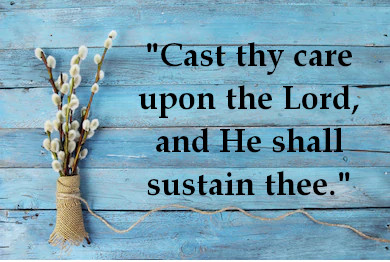
These are trying times for some people. There is much uncertainty in the world. There is much discussion about are we doing the right things? Will the Coronavirus be as bad as the Spanish flu was over a century ago at the end of World War II? We have no plans to attempt to answer these questions."Cast thy care upon the Lord, and he shall sustain thee: he shall not suffer the just to waver for ever." [Psalms 54:23] God will take care of, if we place ourselves in His hands trustingly and completely. There are things we are certain about. Every one reading this will one day die. "But of that day and hour no one knoweth, not the angels of heaven, but the Father alone." [Matthew 24:36] We can avoid the Coronavirus, only to be hit by a bus tomorrow. We simply do not know, but God does. More importantly, God has a plan for each and every one of us, and His plan is perfect. The only one that can mess up God's plan is our own self, and even He knows about that and can work around us.
"And which of you, by taking thought, can add to his stature one cubit?" [Luke 12:25] We are worrying, when we should be trusting in God. Worry shows a lack of trust in God. And worrying comes easy in times of uncertainty. In fact, it can creep up on us and take possession of us. Suddenly we realize, I am worrying and must come to God and ask Him to help us stop worrying.
Yes, there are things to worry about, such as our income, but God has a plan. Many are concerned about how they will feed their family. Cast your care upon the Lord. "And for raiment why are you solicitous? Consider the lilies of the field, how they grow: they labor not, neither do they spin. But I say to you, that not even Solomon in all his glory was arrayed as one of these. And if the grass of the field, which is today, and tomorrow is cast into the oven, God doth so clothe: how much more you, O ye of little faith?" (Matthew 6:28-30) God brought you into this mess and He will bring you and your family through it.
God is giving many of you free time to spend with Him. Are you taking this extra time and doing your home work? Parents are you spending more quality time with your children? Married people are you spending more quality time with each other? Above all, are you spending more time in Scripture, meditation, prayer, spiritual reading and reading the lives of the Saints. Have you asked yourself, what is God trying to teach me through this pandemic?
Let us remember that God has a plan for each and every one of us and sends things into our lives in order to teach and prepare us to fulfill His holy will. When we conform our self to God's will, He in turn will bring us through and home to Heaven. Let us remember where our true home is. This is what encouraged the martyrs through their sufferings. They kept their eye on the prize to use an old saying. Yes God may send suffering and even death into our lives. If He sends these, He has a plan to bring good out of these.
The world calls suffering and death evils. However, let us remember that the only true evil is sin. In fact, Saint John Eudes says that one venial sin is more evil than the destruction of all life on earth. Consider that for a moment. One venial sin is a worse evil. How evil then is a mortal sin? These thoughts should be enough to encourage us to acquire virtue. It is more important to focus on virtue than to focus on avoiding vice and evil. When we focus on the negative of avoiding something, we are thinking about it. However, when we are focused on the positive of virtue, helping others, etc. we are focusing on something positive. We avoid vice and evil naturally, because we are not even thinking about it.
And so let us cast our care upon the Lord and get about doing His holy will.
Ye Were Not Redeemed With Corruptible Things
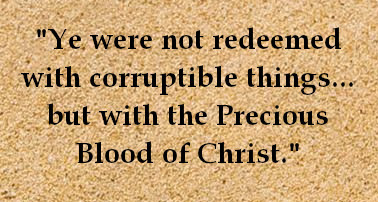
The year 2020 has been one for the record-books so far. It has been a bizarre year which has transpired so far and we've only completed one-third of the year. I can only imagine what the rest of the year will bring. The world-wide pandemic has taken us all by surprise, I am sure. Who would have predicted all of this would have happened? Which one of us would have ever imagined a world-wide pandemic would have taken place? My heart aches for those have lost loved ones to this tragic disease. My heart aches for people affected financially as well by this so-called pandemic. My heart aches for those who have lost their jobs and for those who do not know when (or if) they will go back to work again. My heart aches especially for small business owners who are being hit hard and don't know if they will be able to recover from mandatory closure of their businesses. I myself have heard of family-owned businesses which, although they have been in business for 40, 50, 100 years . . . . . , many of these businesses have either gone out of business already or are on the verge of going out of business because they can not afford to be closed for business for two or three months. My heart goes out to families who will never get this time back again. Older people, for example, who are forced to face seperation from their loved ones for months at a time who can never get that time back again. All of us can come up with our own list of disappointments during this pandemic. But one more thing that I am broken-hearted over is the fact that so many churches are closed the world over during this so-called pandemic. The devil must be rejoicing at this fact. In fact, come to think of it, many government officials and politicians have deemed churches and church services to be non-essential during this shut-down. And yet many of these same government officials and politicians have deemed Abortion providers to be essential. This must make the devil himself grin and laugh with absolute joy. I have not been to church in eight weeks now as I write this. My entire life I have had the opportunity to go to church, to worship God, to be in the presence of my church family, my brothers and sisters in Christ, to listen to the Word of God and to receive the Sacraments. I grew up and lived in America where we have been so blessed with "Freedom of Religion" to worship at our church of choice. So, to me, at least, this is something brand new. This is something I am not used to. As such, this current time has helped me to appreciate what previously I most certainly took for granted. In that light, this will be the benefit of living through this so-called pandemic of 2020. I will always cherish the opportunity to receive the Precious Body and Blood of Our Blessed Lord when I go to Mass.
"Forasmuch as ye know that ye were not redeemed with corruptible things, as silver and gold, from your vain conversation received by tradition from your fathers; But with the precious blood of Christ, as of a lamb without blemish and without spot" (I St Peter 1:18-19)
As human beings, we seem to focus on material things, worldly things. We place so much value into things of this world . . . whether they be riches or possessions or material things. But as St. Peter tells us all of these things are "corruptible things." All of these things that we place so much value on will ultimately fade away into nothing. One thing will never fade, though, and that is the love of God. God loved you and I so much that He gave His Only Son. And the Son loved us so much that He freely died on the Cross to save us from our sins. But Christ knows us human beings so well that He knows we must be nourished in order to survive. He knows that we must be sustained in order to have life. And knowing that He gives us nourishment that will always satisfy. He gives of Himself.
Listen to the words of Our Lord Himself as recorded in the Sixth Chapter of the Gospel of St. John:
"Then Jesus said unto them, Verily, verily, I say unto you, Moses gave you not that bread from heaven; but my Father giveth you the true bread from heaven.
For the bread of God is he which cometh down from heaven, and giveth life unto the world.
Then said they unto him, Lord, evermore give us this bread.
And Jesus said unto them, I am the bread of life: he that cometh to me shall never hunger; and he that believeth on me shall never thirst.
But I said unto you, That ye also have seen me, and believe not.
All that the Father giveth me shall come to me; and him that cometh to me I will in no wise cast out.
For I came down from heaven, not to do mine own will, but the will of him that sent me.
And this is the Father's will which hath sent me, that of all which he hath given me I should lose nothing, but should raise it up again at the last day.
And this is the will of him that sent me, that every one which seeth the Son, and believeth on him, may have everlasting life: and I will raise him up at the last day." (St. John 6:32-40)
And additionally we hear further on the in this same chapter:
"No man can come to me, except the Father which hath sent me draw him: and I will raise him up at the last day.
It is written in the prophets, And they shall be all taught of God. Every man therefore that hath heard, and hath learned of the Father, cometh unto me.
Not that any man hath seen the Father, save he which is of God, he hath seen the Father.
Verily, verily, I say unto you, He that believeth on me hath everlasting life.
I am that bread of life.
Your fathers did eat manna in the wilderness, and are dead.
This is the bread which cometh down from heaven, that a man may eat thereof, and not die.
I am the living bread which came down from heaven: if any man eat of this bread, he shall live for ever: and the bread that I will give is my flesh, which I will give for the life of the world.
The Jews therefore strove among themselves, saying, How can this man give us his flesh to eat?
Then Jesus said unto them, Verily, verily, I say unto you, Except ye eat the flesh of the Son of man, and drink his blood, ye have no life in you.
Whoso eateth my flesh, and drinketh my blood, hath eternal life; and I will raise him up at the last day.
For my flesh is meat indeed, and my blood is drink indeed.
He that eateth my flesh, and drinketh my blood, dwelleth in me, and I in him.
As the living Father hath sent me, and I live by the Father: so he that eateth me, even he shall live by me.
This is that bread which came down from heaven: not as your fathers did eat manna, and are dead: he that eateth of this bread shall live for ever." (St. John 6:44-58)
You see, Our Blessed Lord chose to give of Himself because He loves us. When we love someone we want to give our best. When we love someone we want to give our utmost. And Christ wants the best for us. He wants to nourish us with His own Body and Blood. As Christ Himself tells us Verse 54: "Whoso eateth my flesh, and drinketh my blood, hath eternal life; and I will raise him up at the last day." Christ is giving us new life through Him. So many of us in this world try to find meaning in the things of this world but things of this world will always ultimately disappoint. Only a relationship with God Himself will have true eternal meaning. I can not wait until I am able to attend Mass again and praise Our Blessed Saviour and receive the "True Bread from Heaven." (St. John 6:32) God, please forgive me for the times I took going to Mass for granted and did not appreciate God as much as I should have.
The Funny Pharmacy
A joyful mind maketh age flourishing: a sorrowful spirit drieth up the bones. - Proverbs 17:22


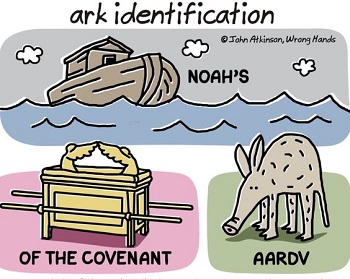




The 1983 Code of Canon Law suffers the defect of being promulgated by a Non-Pope with no authority to change or reform the previous Church Law? Also there could not have been valid and licit changes in the liturgical calendar of the Church, nor its Liturgy...or its canonized Saints?
All the actions of The Roman usurpers from John XXIII through Paul VI, John Paul II the Great Deceiver, Benedict and Francis have been invalid. The 1983 Code of Canon Law must be rejected as well as all of their canonizations and liturgical changes.o, parts of Vatican II may not be heretical.

The Pope Speaks: May 2020
Prophecy

Last month we discussed three events in the early 1970's, the Saint Nilus Prophecy, the Padre Pio Prophecy and Yves Dupont's book, Catholic Prophecy. Today there are many books available on prophecy and a lot of speculation about what is coming upon us. However, we had Sacred Scripture, which no one could make head nor tails of, and these three private prophecies.
Catholic Prophecy had a comet on the cover, because one prophecy talks about a comet. He devoted a whole chapter to the coming comet. This came out just before Comet Kahoutek was discovered and passed near earth in 1972. Some thought maybe this is THE comet, but Kahoutek was not even visible to the naked eye in spite of dire predictions. Even Halley's comet was a dud on its last pass. However, this got people reading and wondering.
Two page typed prophecy about the Three Days of Darkness attributed to Padre Pio, introduced everyone to the thought of a coming chastisement, which will cleanse the world of all the evil surrounding us. A lot of candles got blessed, because of this alleged prophecy. Yves Dupont would strengthen this belief in his book, when he mentions the Three Days of Darkness. There is strong doubt that Padre Pio actually received this revelation.
The Saint Nilus prophecy sounds like an apt description of much of what happened in the last half of the twentieth century. It was typed on a single page and received large circulation in the early 1970's. However, no source was given for this prophecy, and today many doubt that Saint Nilus had anything to do with this prophecy.
Dupont mentioned the Saint Malachy prophecies, but failed to mention that many doubt their authenticity. And this also led to much speculation. In fact, there are three prophecies on the last Popes found in Father Gerald Culleton's book, The Prophets And Our Times, eventually republished by TAN Books. They do somewhat work together, but with one large problem, one of the prophecies names the Popes, but gets off course naming the successor Pius XII: "Thou art the Angelic Pastor of Rome, O benevolent doctor, O most indulgent father,-Hail, Gregory XVII, most Holy Father, necessary shepherd." Three have claimed to be this Pope, based upon this prophecy, two seers, Clement in Palmar de Troya, Spain, and Gaston Tremblay in Canada. A third claim is that two days before Angelo Roncalli stepped out as the second man claiming to be Pope John XXIII in history, Joseph Cardinal Siri was elected as Pope Gregory XVII.
Dupont also introduced people to the Great Monarch idea, that some time in the near future a Great Monarch will arise and set things straight before it all falls apart again under Antichrist. Many follow this idea until today.
Now there are private prophecies to support both the Great Monarch idea and the Three Days of Darkness idea, which can be verified. However, how should we really look at prophecy?
First of all, we have seen that things circulated, in the early 1970's that actually have been officially condemned by the Church in whole or in part. So we must check to see what the Church says on these things. Two prophecies were published in the early 1960's by Emmett Culligan, the Third Secret of Fatima and the Secret of La Salette. Culligan alleged that the Fatima Secret had gotten out, and been published.
First let us address, the Secret of La Salette, which has been put on the Index of Prohibited Books, although used by some Traditionalists in spite of this, including Archbishop Marcel Lefebvre in his sermon, when he consecrated four bishops for the SSPX. The Secret of La Salette in circulation is defective, because it does not contain anything about infallibility, in spite of the fact that Melanie asked about two things, Antichrist and infallibility.
The Third Secret of Fatima has long been a matter of speculation. In fact, the Vatican has revealed what it claims is the Third Secret, although many rightfully doubt its authenticity. The Vatican edition does not match the Culligan edition. Our first rule is to dismiss anything that may be spurious.
There is a rule for discerning the spirits, as Scripture advises us. (I John 4:1) If God is communicating to us through someone, everything they give us from Him, directly or through Mary or a saint or angel, will be true. Now a prophet might misunderstand a minor point or not write it down straight, but if he makes a major mistake, then we must dismiss everything he reports. Also, if he contradicts Scripture, then he is wrong.
In studying private prophecy over the years, I have found we should dismiss all of it. There is just too much uncertainty. Although Scripture may be difficult to understand, when the events actually occur, we can look back and see what God is communicating through the prophet. This is what theologians have done for centuries with the Old Testament prophecies, which point to our Lord Jesus Christ.
The big question we need to ask is this, do I really NEED to know what is coming in the future? If I truly need to know, God will show me in a manner I can be certain He is communicating directly or indirectly to me. If God is silent, then let us remain silent rather than wasting effort trying to discern the future.
There are a few things we can know with certainty will occur in the future, since they have not already occurred in the past. The Fathers of the Church have considered the time of Antichrist and the terrible persecution that will occur at that time. When the Fathers of the Church unanimously agree on an interpretation of Sacred Scripture, the Church considers their conclusion to be infallibly true.
Henry Edward Cardinal Manning gave a series of four lectures, which were combined into a book, The Present Crisis of the Holy See: "Now, first of all what is this “taking away of the continual sacrifice”?
"It was taken away in type at the destruction of Jerusalem. The sacrifice of the Temple, that is, of the lamb, morning and evening, in the Temple of God, was entirely abolished with the destruction of the Temple itself. Now the Prophet Malachias says: "From the rising of the sun even to the going down, any name is great among the Gentiles; and in every place there is sacrifice, and there is offered to my name a clean oblation." This passage of the prophet has been interpreted by the Fathers of the Church. beginning with St. Irenaeus, St. Justin Martyr, and I know not how many besides, to be the sacrifice of the Holy Eucharist, the true Paschal lamb which came in the place of the type—namely, the sacrifice of Jesus Himself on Calvary renewed perpetually and continued for ever in the sacrifice on the altar. Now has that continual sacrifice been taken away? That which was typical of it in old days has been already taken away. But has the reality been taken away? The holy Fathers who have written upon the subject of Antichrist, and of these prophecies of Daniel, without a single exception, as far as I know, and they are the Fathers both of the East and of the West, the Greek and the Latin Church—all of them unanimously,—say that in the latter end of the world, during the reign of Antichrist, the holy sacrifice of the altar will cease. In the work on the end of the world, ascribed to St. Hippolytus, after a long description of the afflictions of the last days, we read as follows: "The Churches shall lament with a great lamentation, for there shall be offered no more oblation, nor incense, nor worship acceptable to God. The sacred buildings of the churches shall be as hovels; and the precious body and blood of Christ shall not be manifest in those days; the Liturgy shall be extinct; the chanting of psalms shall cease; the reading of Holy Scripture shall be heard no more. But there shall be upon men darkness, and mourning upon mourning, and woe upon woe. Then, the Church shall be scattered, driven into the wilderness, and shall be for a time, as it was in the beginning, invisible, hidden in catacombs, in dens, in mountains, in lurking-places; for a time it shall be swept, as it were, from the face of the earth. Such is the universal testimony of the Fathers of the early centuries."
At the time of Antichrist, the Holy Sacrifice of the Mass will be taken away COMPLETELY. There will be no Masses. A logical conclusion is that every valid priest will be neutralized. Some will be martyred, while others will fall away into apostasy under Antichrist.


Saint John Cassian
On The Eight Vices
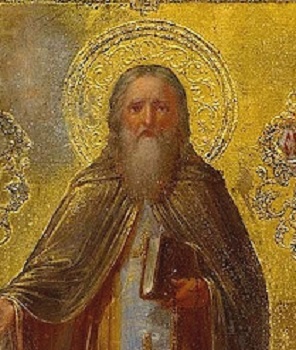
On Self-Esteem
Our seventh struggle is against the demon of self-esteem, a multiform and subtle passion which is not readily perceived even by the person whom it tempts. The provocations of the other passions are more apparent and it is therefore somewhat easier to do battle with them, for the soul recognizes its enemy and can repulse him at once by rebutting him and by prayer. The vice of self-esteem, however, is difficult to fight against, because it has many forms and appears in all our activities - in our way of speaking, in what we say and in our silences, at work, in vigils and fasts, in prayer and reading, in stillness and long-suffering. Through all these it seeks to strike down the soldier of Christ. When it cannot seduce a man with extravagant clothes, it tries to tempt him by means of shabby ones.
When it cannot flatter him with honor, it inflates him by causing him to endure what seems to be dishonor. When it cannot persuade him to feel proud of his display of eloquence, it entices him through silence into thinking he has achieved stillness. When it cannot puff him up with the thought of his luxurious table, it lures him into fasting for the sake of praise.
In short, every task, every activity, gives this malicious demon a chance for battle. He even prompts us to imagine we are priests. I remember a certain elder who, while I was staying in Sketis, went to visit a brother in his cell. When he approached his door, he heard him speaking inside; thinking that he was studying the Scriptures, he stood outside listening, only to realize that self-esteem had driven the man out of his mind and that he was ordaining himself deacon and dismissing the catechumens. When the elder heard this, he pushed open the door and went in. The brother came to greet him, bowed as is the custom, and asked him if he had been standing at the door for a long time. The elder replied with a smile: "I arrived a moment ago, just when you were finishing the dismissal of the catechumens." When the brother heard this, he fell at the feet of the elder and begged him to pray for him so that he would be freed from this delusion. I have recalled this incident because I want to show to what depths of stupidity this demon can bring us.
The person who wants to engage fully in spiritual combat and to win the crown of righteousness must try by every means to overcome this beast that assumes such varied forms. He should always keep in mind the words of David: "The Lord has scattered the bones of those who please men." (Ps. 53:5). He should not do anything with a view to being praised by other people, but should seek God's reward only, always rejecting the thoughts of self-praise that enter his heart, and always regarding himself as nothing before God. In this way he will be freed, with God's help, from the demon of self-esteem.

Saints from East and West
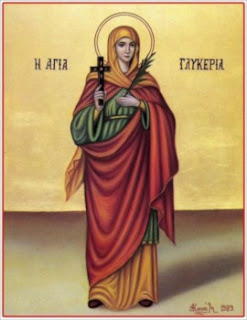
May 13 - Saint Glyceria
Saint Glyceria suffered as a martyr for her faith in Christ in the second century, during the time of a persecution against Christians under the emperor Antoninus (138-161). She was descended from illustrious lineage: her father Macarius was the city-governor of Rome, and afterwards he resettled to the Thracian city of Trojanopolis. But Saint Glyceria early on lost both her father and mother. Falling in with Christians, she converted to the true faith, and daily she visited the church of God.
The Trojanopolis governor, Sabinus, having received the imperial edict about compelling Christians to offer sacrifice to the idols, and so he set the inhabitants of the city a day of general worship of the idol Zeus. Saint Glyceria firmly resolved to suffer for Christ, she told the Christians about her intention, and she besought them to pray that the Lord would send her the strength to undergo the sufferings. On the festal day of Zeus Saint Glyceria, having traced on her forehead the Sign of the Cross, went into the pagan temple; the saint stood on a raised spot in the rays of the sun, and snatched from her head the veil, showing all the holy Cross, traced on her forehead. She prayed heatedly to God, that He should bring the pagans to their senses and destroy the stone idol of Zeus. Suddenly thunder was heard, the statue of Zeus crashed to the floor and smashed into little pieces. In a rage, the governor Sabinus and the pagan priests commanded the people to pelt Saint Glyceria with stones, but the stones that were thrown did not touch the saint.
They locked up Saint Glyceria in prison, where the Christian priest Philokrates came to her and encouraged the martyress in the deed before her. In the morning, when the tortures had started, suddenly amidst the torturers there appeared an Angel, and they all fell to the ground, overcome with terror. When the vision vanished, then by order of Sabinus, himself hardly able to speak, they again led off the saint to prison. They securely shut the door and sealed it with the personal ring of the governor, so that no one could get in to her. During all her time of being thus locked in, Angels of God brought Saint Glyceria food and drink.
Some many days afterwards Sabinus came to the prison and he himself removed the seal. Going in to the saint, he was shaken, seeing her alive and well. Setting off for the city of Heraclium, Sabinus gave orders to bring along there also Saint Glyceria. From this city there came out to meet her the Christians of Heraclium with the bishop Dometius at the head, and in front of everyone he uttered a prayer to the Lord for strengthening the saint in the act of martyrdom. At Heraclium they cast Saint Glyceria into a red-hot furnace, but the fire in it at once extinguished. Then the governor, in a mindless fury, gave orders to strip the skin from the head of Saint Glyceria. Then they threw the bared martyress into prison onto sharp stones, where she prayed incessantly, and at midnight in the prison there appeared an Angel which healed her of her wounds.
The prison guard Laodicius, having come in the morning for the saint, at first did not recognise her, and thinking that the martyress had been hidden away he wanted to kill himself in fear of punishment, but Saint Glyceria stopped him. Shaken by the miracle, Laodicius believed in the True God and he besought prayers of the saint, that he also might suffer and die for Christ together with her. "Follow Christ and thou wilt be saved," the holy martyress answered him. Laodicius placed upon himself the chains, with which the saint was bound, and at the trial he declared to the governor and everyone present about the miraculous healing of Saint Glyceria by an Angel and he confessed himself a Christian. The newly chosen one of God was immediately beheaded by the sword. Christians, having secretly taken up his remains, reverently gave them burial, but Saint Glyceria was given over for devouring by wild beasts. She went to execution with great joy, but the lioness set loose upon the saint meekly crawled up to her and, curling up, lay at her feet. Finally, the saint turned with a prayer to the Lord, imploring that He take her unto Himself. In answer she heard a Voice from Heaven, summoning her to the Heavenly bliss. At this moment there was set loose upon the saint another lioness, which pounced upon the martyress and killed her, but did not rend her apart. Bishop Dometius and the Heraclium Christians reverently buried the holy Martyress Glyceria. She suffered for Christ in about the year 177. Her holy relics were glorified with a flow of curative myrrh.
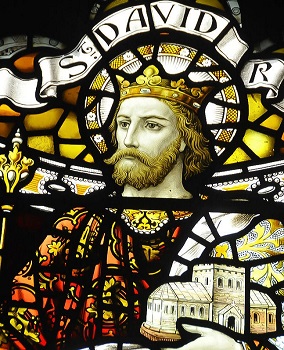
May 24 - Saint King David I of Scotland
The name of this king occurs in several old Scottish calendars and more than one modern Catholic church is dedicated in his honour; he belongs to the category of popularly canonized national heroes, the particulars of whose life belong mainly to secular history. He was born about 1080, the youngest of the six sons of King Malcolm Canmore and his queen, Saint Margaret. In 1093 he was sent to the Norman court in England, where he remained for some years. When his brother Alexander succeeded to the Scottish throne in 1107, David became prince of Cumbria (roughly the Lowlands), and by his marriage in 1113 to Matilda, widow of the earl of Northampton, he became earl of Huntingdon. In 1124 he succeeded his brother as King David I.Saint Aelred of Rievaulx was in his earlier years master of the household to David, with whom he kept up a close friendship, and after the king's death he wrote an account of him. In it he speaks of David's reluctance to accept the crown, of the justice of his rule, of his almsdeeds and his accessibility to all, of his efforts to maintain concord among the clergy, of his personal piety, and in general of the great work he did for the consolidation of the kingdom of Scotland. Aelred's only criticism was of his failure to control the savagery and rapacity of his troops when he invaded England, on behalf of his niece Matilda against Stephen. For this David was very contrite, and is said to have looked on his defeat at the Battle of the Standard and elsewhere and the early death of his only son as just retribution therefor.
It was afterwards complained that King David's benefactions to the Church impoverished the crown, among the critics being his fifteenth-century successor, James I. For not only did he found the royal burghs of Edinburgh, Berwick, Roxburgh, Stirling, and perhaps Perth, but he also established the bishoprics of Brechin, Dunblane, Caithness, Ross, and Aberdeen and founded numerous monasteries. Among them were the Cistercian houses of Melrose, Kinloss, Newbattle, and Dundrennan, and Holyrood itself for Augustinian canons.
Saint Aelred gives a circumstantial account of David's death at Carlisle on May 24, 1153. On the Friday he was anointed and given viaticum, and then spent much time in praying psalms with his attendants. On Saturday they urged him to rest, but he replied, "Let me rather think about the things of God, so that my spirit may set out strengthened on its journey from exile to home. When I stand before God's tremendous judgement-seat you will not be able to answer for me or defend me; no one will be able to deliver me from His hand." And so he continued to pray; and at dawn of Sunday he passed away peacefully as if he slept.
Saint David had helped to endow Dunfermline Abbey, founded by his father and mother, and he had peopled it with Benedictine monks from Canterbury. There he was buried, and at his shrine his memory was venerated until the Reformation.


Books to feed your faith!
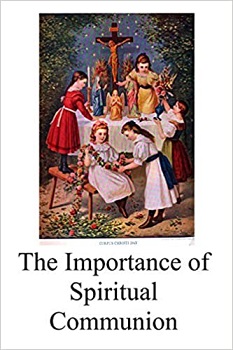
The Importance of Spiritual Communion
Kindle $2.99 / Paperback $5.99
If we cannot receive Holy Communion actually, then let us do so spiritually. These prayers and instructions have been gathered from the Saints and other venerated spiritual writers. Spiritual Communion has been a part of the spiritual life for decades. Growing up I was instructed to make a Spiritual Communion, when I could not go to Communion such as when I assisted at a second Mass. The same is true if one finds oneself at Mass, but not fasting. There are times coming, when it will be difficult, if not impossible to assist at the Holy Sacrifice of the Mass. We should be prepared for such times.
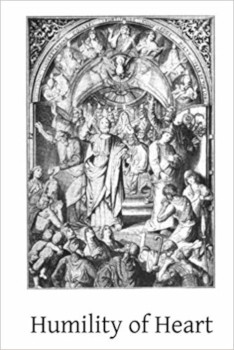
Humility of Heart
$4.95
To his own soul Cardinal Vaughan found so much benefit from the cultivation in it of Humility, that he resolved, at no small cost to himself, in the feeble state in which he then was, to gird himself and to go forth sowing broadcast, into the soil of the hearts of the laity as well as of clergy, this despised little mustard seed of which men speak so much but know so little. It was Padre Gaetano's work on Humility that had been the instrument, in God's hand, of helping the Cardinal. Accordingly in his zeal for souls he proposed to put it into English, so as to bring the work within the reach of all such as care for the health, growth and strength, of their own individual souls in solid virtue. That the Cardinal has left us a precious legacy in this treatise on Humility will, I feel sure, be the verdict of all who study, or who only peruse these pages, done into English from the Italian of the devout Minor Capuchin whose death occurred over two centuries ago. Between the covers of this unpretending volume there is nourishment for all who "hunger and thirst after justice"-----for the proficient in spiritual life as well as for the beginner-----Humility, as it were, holding in itself all those elements that are needed to build up the strong Christian man. In it the soul will find a sovereign remedy for its many ills, a matchless balm for its many wounds, while a soul-beauty all is own will spring up in all who shall learn how to use it wisely under the guidance of the Holy Spirit." He who is truly humble," says St. Bernard, "knows how to convert all his humiliations into humility," while out of humility God can raise a soul to what otherwise might be, giddy heights of sanctity. If anyone should need a proof of this statement I will refer him to any chapter in the life of any Saint in our Calendar. For a moment gaze into the face of "the Woman clothed with the Sun" and remember the words, "Respexit humilitatem ancillae suae." The height of Mary's sanctity is gauged by the depth of her humility: "Exaltavit humiles." To the Clergy and Ladies of Charity, to whom the Cardinal dedicates these "Thoughts and Sentiments," this volume will come with very special meaning. It enshrines the last words of a great Churchman, of a truly spiritual man, while it conveys a special message from the Cardinal's heart to all readers. This treatise is a sort of last will and testament of Cardinal Vaughan, bequeathed to those with whom he was most intimately associated in work for the good of souls. It is a legacy from one who made Humility a life-long study, and who had more opportunities than most of us know of making tremendous strides in it, through the humiliations which he welcomed as most precious opportunities offered him by God for the salvation and sanctification of his soul. May he rest in peace.
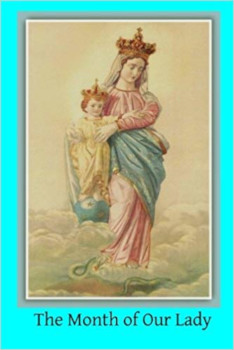
The Month of Our Lady
$17.95
DEVOTION to our Blessed Lady has been so long established among the faithful and is so universally known and practised, that any explanation on my part is unnecessary and superfluous. The compiler and translator has been induced to think that he would render a service to religion, and at the same time pay a tribute of devotion to the Mother of God, by presenting this old work in a new English dress. That this little book may promote and foster among the faithful deep and heartfelt devotion to the Blessed Virgin Mary. As a woman was instrumental in the fall of man, it was the will of God that a woman should co-operate in man's redemption. During forty centuries the Lord, in the language of Isaias, observed attentively the illustrious women who from time to time appeared, in order to choose her who should be most worthy of himself and best adapted to the plan of the redemption of man. Sara presented herself in the splendor of her wealth, Rebecca in the lustre of her beauty, and Rachel in the elegance of her grace; but their wealth, beauty, and grace had no attractions for the Most High. Ruth, Jahel and Judith, Abigail and Esther, appeared in succession; but none of these was chosen. They were all figures of that exalted maiden in whom the virtues and worth of each and all of them were to be united. Who then will be that illustrious woman foretold by the prophets, longed for by the patriarchs, foreshown from the earliest days in symbols and figures so numerous and so various, and promised by the Almighty from the beginning? ,Lovely daughter of JoachiIn and Anne, thou art the chosen one! Although many maidens have arrayed themselves in garments of glory, Mary far surpasses them in abundance of merit and fulness and richness of reward. Mary, as well in the order of nature as in the order of grace and glory, far excels all women, all just souls, and even all angelic beings united; for she alone attracted the especial preference of Almighty God, and was selected by him to be the mother of his Son, and thus to cooperate in our redemption. Wishing to consecrate to the honor of Our Lady the month of May, we shall commence our exercises of piety by considering the principal motives which urge us, as Christians, to pay to her the tribute of our devotion. The first is because amongst all created beings she is adorned with transcendent sanctity, the second because she is the mother of God and also our mother.
Charity: A Commentary on I Corinthians 13 by Saint Alphonsus
$9.99 paperback / $0.99 Kindle
Charity is patient, is kind: charity envieth not, dealeth not perversely; is not puffed up; Is not ambitious, seeketh not her own, is not provoked to anger, thinketh no evil; Rejoiceth not in iniquity, but rejoiceth with the truth; Beareth all things, believeth all things, hopeth all things, endureth all things. (I Corinthians 13:4-7) Saint Paul wrote wonderfully about charity in the 13th chapter of First Corinthians. Saint Alphonsus takes these words and gives a simple view of the Catholic way of life and an excellent introduction into the spiritual life. This is excerpted from his work, The Holy Eucharist, which has been excerpted from The Complete Works of Saint Alphonsus, which was compiled and translated by Father Eugene Grimm. (1835-1891)
For More Good Traditional Catholic Books:


Brother Argus Parker's Strawberry Banana Bread

Ingredients
4 eggs, lightly beaten
2 cups white sugar
1 1/2 cups strawberries, mashed
1 cup mashed bananas
1 tablespoon orange zest
1 cup vegetable oil
3 cups all-purpose flour
1 teaspoon baking soda
1 1/2 teaspoons ground cinnamon
1/2 teaspoon salt
1/4 teaspoon ground nutmeg
1 cup chopped walnuts
Directions
1. Preheat oven to 350 degrees F (175 degrees C). Grease two 9x5 inch pans.
2. In a medium bowl, mix together flour, baking soda, cinnamon, salt, and nutmeg.
3. In a large bowl, combine eggs, sugar, strawberries, bananas, orange peel, and oil. Beat with an electric mixer at medium speed for 2 minutes. Add flour mixture, and stir just until moistened. Stir in walnuts.
4. Bake for 1 hour, or until loaves test done. Remove to wire rack to cool.
Miroslav's Chicken Kebabs

Ingredients
½ cup olive oil
½ cup ranch dressing
3 tablespoons Worcestershire sauce
1 tablespoon minced fresh rosemary
2 teaspoons salt
1 teaspoon lemon juice
1 teaspoon white vinegar
¼ teaspoon ground black pepper, or to taste
1 tablespoon white sugar, or to taste (optional)
5 skinless, boneless chicken breast halves - cut into 1 inch cubes
Directions
1. In a medium bowl, stir together the olive oil, ranch dressing, Worcestershire sauce, rosemary, salt, lemon juice, white vinegar, pepper, and sugar. Let stand for 5 minutes. Place chicken in the bowl, and stir to coat with the marinade. Cover and refrigerate for 30 minutes.
2. Preheat the grill for medium-high heat. Thread chicken onto skewers and discard marinade.
3. Lightly oil the grill grate. Grill skewers for 8 to 12 minutes, or until the chicken is no longer pink in the center, and the juices run clear.

Video sermons and instructions: Timeless timely truths for living the Faith
Fifth Sunday after Easter, 2013.
Ascension 2013.
The Sunday after the Ascension, 2013.
Lamp and Light: Gospel of Matthew 3:1-6, Part 2

Encouragement for Today
Therefore encourage one another and build one another up.... I Thessalonians 5:11
We believe...
that through our assorted podcasts, audio downloads and devotional blogs, you will find an assorted Treasure Chest of...
Sermons
Devotionals
Scripture Studies
Catechism Lessons
Daily Blogs
...that will be a help in your faithful walk with the Lord.
LEARN MORE AT THE ENCOURAGEMENT FOR TODAY WEBSITE: https://www.encouragementfortoday.com
THE SINGING LAKE

“Let all the earth adore thee, and sing to thee: let it sing a psalm to thy name.”
Psalm 66:4.
It’s a quiet, cool, overcast morning at the lake. There’s a hint of fog in the air and a fine, lightly falling drizzle. Then you notice the sound. It’s almost a musical note, and it’s coming from the lake. It’s almost as if the lake were singing.
Many people report hearing a lake “sing” when there is a fine drizzle falling. Those who have never heard it are skeptical. However, now science has confirmed that lakes do indeed “sing” in a fine drizzle. Scientists even know what causes it. And in this case, the scientific explanation doesn’t decrease our wonder and awe at this amazing phenomenon.
Canadian scientists placed an underwater microphone at a depth of about 100 feet in a Vancouver Island lake. They placed the microphone almost 1000 feet from shore so they would be certain not to pick up any sounds from the shore. Then they waited for the weather to change. The scientists eventually recorded the sounds of rain, hail, drizzle, and even snow hitting the surface of the lake. Yes, even snow makes a sound when it strikes the water! Their findings show that the fine drops of water in drizzle strike the surface of the lake almost as if they were tiny explosive charges. When they burst on the water, they give off a “ping.” While you’d never hear a few of these droplets “ping,” countless billions of them add their sound together to make the lake literally sing.
Scripture is correct in a literal sense when it tells us that everything in the creation sings praises to its Creator.

Catechism Catch-Up
The Third Commandment Lesson 6

The Jewish Sabbath Was Changed To Sunday By The Apostles
"The Apostles resolved to consecrate the first day of the week to the divine worship, and called it the Lord's day."- Catechism of the Council of Trent
"The Church of God has thought it well to transfer the celebration and observance of the Sabbath to Sunday.
For, as on that day light first shone in the world, so by the Resurrection of our Redeemer on the same day, by whom was thrown open to us the gate to eternal life, we were called out of darkness into light; and hence the Apostles would have it called the Lord's day.
We also learn from the Sacred Scriptures that the first day of the week was held sacred because on that day the work of creation commenced, and on that day the [power of the] Holy Ghost was given to the Apostles."-Catechism of the Council of Trent.
What does Scripture say concerning Sunday being our Sabbath Day?
(Galatians 4:9-10)
But now, after that you have known God, or rather are known by God: how turn you again to the weak and needy elements, which you desire to serve again? You observe days, and months, and times, and years.
Saint Paul in his Epistle to the Galatians, reproves the observance of the Mosaic rites when he says, "You observe days, and months, and times, and years."
"Ye observe days," meaning the sabbath days. Pauls said to the Colossians, "Let no man therefore judge you in......respect of an holyday, or of the new moon, or the sabbath days" (Colossians 2:16).
"Months" probably refers to the observance of the "new moon" practiced by the people of Israel in the time of the kings. The prophets warned them against it.
"Times" can be translated seasons, meaning feast. God had given Israel seven feasts, but they all had pointed to the Lord Jesus Christ.
"Years" of course would refer to the sabbatic years.
(1 Corinthians 16:2) On the first day of the week let every one of you put something aside and store it up,as God hath prospered you, so that there will be no collecting when I come.
Notice carefully that it does not say,- "On Seventh day of the week, (the Jewish sabbath day), let every one of you put something aside and store it up,as God hath prospered you, so that there will be no collecting when I come." What it actually says is, "on the first day of the week" When Saint Paul says to bring your offering on the first day of the week, this was the day on which the church came together to remember the Lord Jesus in His death and in His resurrection. He rose on the first day of the week, which is Sunday, not Saturday.
"let every one of you put something aside and store it up,as God hath prospered you,"
He says nothing about tithes and offerings. That's because tithes and offerings would have been brought on the Jewish Sabbath day. The New Testament does not teach tithing. It teaches to "put aside...as God hath prospered you."
(Romans 14:5-6) One man judgeth one day above another: another judgeth every day alike. Let every man be fully persuaded in his own mind. He that regardeth the day, regardeth it unto the Lord.
"Fully persuaded" means to be convinced, to be assured in one's mind.
The problem is set in the context of tensions between the Jewish minority and Gentile majority in Rome (see Romans 11). The problem appears to have arisen because many Jewish Christians and Gentile Christians influenced by Jewish tradition regarded the continued observance of the Jewish sabbath and festival days as of continued importance because they viewed the new movement they were a part of as a fulfilled form of Judaism. Here, though, Paul speaks both of the freedom to keep or not to keep the sabbath.
(Colossians 2:16-17) Let no man therefore judge you in.........respect of a festival day, or of the new moon, or of the sabbaths. Which are a shadow of things to come, but the body is of Christ.
A believer is not to observe Jewish festival days, or new moons or the Jewish sabbaths of the Old Testament. Saint Paul explains that they were merely "shadow of things to come". We get our word photograph from the greek word for "shadow". All the rituals of the Law in the Old Testament were like a negative or a picture- they were just pictures of Christ. Now that Christ has come, we have the reality. We do not need the picture anymore.
Next, we will look at the sabbath controversies in the Gospels to see how the Gospel writers portrayed Jesus in reference to the sabbath. We will examine these texts to see whether Jesus is shown to have broken the sabbath command as given in the Torah or whether he simply broke the halakic interpretations of the sabbath. (Halakic interpretation: The Halakah was developed to guide the Jews in areas where the scriptural text was not explicit.)
Living Catholic:
THE CONSEQUENCES OF BITTERNESS

A. THERE WILL BE PHYSICAL CONSEQUENCES
• CHEMICAL BALANCE : Ulcerative colitis, toxic goiters, high blood pressure are only a few of the scores of diseases caused by bitterness. Our resentments call forth certain hormones from the pituitary, adrenal, thyroid and other glands. Excesses of these hormones can cause diseases in any part of the body. (See None of These Diseases, S. I. McMillen, Spire Books, 1968, pp. 69-72.)
• FACIAL FEATURES : Refusing to forgive results in physical fatigue and loss of sleep. We may try to hide our resentments, but soon they will also be etched into our eyes and facial muscles as permanent reflections of our inward feelings.
• BONE HEALTH : The life of the flesh is in the blood. (Leviticus 17:11) But the "factory" for the blood is the marrow of our bones. The health of our bones, therefore, determines the health of our body. Bitterness has a direct and devastating effect upon our bones. For a study of this see: Psalm 32:3; Proverbs 15:30; Proverbs 17:22; Proverbs 14:30; Proverbs 12:4; Ezekiel 32:27.
B. SPIRITUAL CONSEQUENCES
• An inability to love God is the immediate result of hating another person. "If a man say, I love God, and hateth his brother, he is a liar: for he that loveth not his brother whom he hath seen, how can he love God whom he hath not seen? And this commandment have we from him, that he who loveth God love his brother also." (I John 4:20,21 )
• Doubts regarding our relationship with God commonly accompany bitterness. This is quite natural since most of us have prayed the Lord's prayer in which we pray, “And forgive us our debts, as we also forgive our debtors.” (Matthew 6:12)
Hence, if we refuse to forgive other people, we are actually asking God not to forgive us. The significance of this point is emphasized by Jesus Christ, "For if you will forgive men their offences, your heavenly Father will forgive you also your offences. But if you will not forgive men, neither will your Father forgive you your offences." (Matthew 6:14,15)
• Major hindrances to the spiritual development of others may result when we refuse to forgive-especially if we claim to be in a right fellowship with God. Our attitudes of bitterness will repel them from whatever it is that we are trying to convince them of. If we are to allow Christ to live in us we must allow Him to forgive through us.
C. EMOTIONAL CONSEQUENCES
Depression is one of the most significant consequences of refusing to forgive the people who wrong us. It requires emotional energy to maintain a grudge. Just as we become weary when our physical energy is exhausted, so we become depressed when our emotional energy is exhausted.
Bitterness and resentment create an "emotional focus" toward the person who offended us. This focus is the chief cause of becoming just like the one we resent. The more we focus on his actions toward us, the more we resemble the basic attitudes which prompted his actions.
D. MENTAL CONSEQUENCES
A medical doctor illustrates the mental consequences of holding resentments with this description:
"The moment I start hating a man, I become his slave. I can't enjoy my work any more because he controls my thoughts. My resentments produce too many stress hormones in my body, and I become fatigued after only a few hours of work. The work I formerly enjoyed is now drudgery. Even vacations cease to give me pleasure. I can't escape his tyrannical grasp on my mind.”....
"When the waiter serves me porterhouse steak, it might as well be stale bread and water. My teeth chew the food, and I swallow it, but the man I hate will not permit me to enjoy its taste." (McMillen, p. 72)
It is for this reason that Solomon wrote, "It is better to be invited to herbs with love, than to a fatted calf with hatred.." (Proverbs 15:17)
E. MULTIPLYING THE CONSEQUENCES OF BITTERNESS
Bitterness is all too easily passed on from one generation to another, thus affecting hundreds of descendants. The sins of the parents are visited to the third and fourth generations of those who hold hatred in their heart. (Deuteronomy 5:9) Notice how this relates to discipline in the following illustration:
FIRST GENERATION Bitterness toward parents for their strict discipline prompts leniency and inconsistency in disciplining their children.
SECOND GENERATION Bitterness toward parents for their leniency-feeling they don't care prompts strictness and inconsistency in disciplining their children.
THIRD GENERATION Bitterness toward their parents for their strict discipline prompts leniency and inconsistency in disciplining children.
FOURTH GENERATION Bitterness toward parents for their leniency-feeling they don't care
about them prompts strictness and inconsistency in disciplining their children.
• THERE IS A SEQUENCE OF BITTERNESS TO THE THIRD AND FOURTH GENERATION
An Example:
The mother of two teenagers sensed that there was a wall between her and her daughters. They rarely confided in her and became quite bitter whenever she would try to discipline them, even when they were clearly in the wrong.
She knew of only one problem on her part which may have caused this...she tended to over correct them. One day she asked, "Why am I so strict with my daughters? I find myself constantly being too sharp with them, and I know this has been going on for quite a few years." The following two questions pin pointed part of the problem:
"Did you get married with your parents' full approval?" (more on this in a different post)
"Did they predict that your marriage would not be very successful?"
She was surprised to hear these questions and even more surprised to see how her past lack of forgiveness and bitterness toward her parents affected her discipline of her children. The following sequence began with her parents:
• FIRST GENERATION (HER PARENTS)
There were conflicts, bitterness, arguments and lack of discipline in family habits. These factors had already isolated the grandparents from their parents; and when the children saw these habits and inconsistencies, their respect and desire for counsel from them was shattered.
Discipline was irregular and inconsistent. The daughter resented all that her parents stood for and refused to heed their advice in regard to her marriage. The parents not only disapproved of her marriage but repeatedly warned her that her marriage would not be successful.
She purposed that it would be, and thus a contest was established which would have devastating effects for generations to come.
• SECOND GENERATION (HERSELF)
The daughter left her parents physically but not emotionally. She was not free in her marriage because that "contest" had been declared. She was out to prove her marriage would be successful. She pictured her parents sitting back, waiting to say, "We told you so!"
As the normal adjustments in marriage occurred, she kept imagining what her mother would say and thus kept many problems to herself. When her children were born, she saw this as a new means of winning her point. "After all, it takes successful parents to raise successful children" she reasoned.
This pressure of proving her point and the fact that her reputation was involved with the behavior and performance of her children caused her to be overcritical of them. She was not free to respond objectively in discipline. Always in the back of her mind was the question, "What would my parents think if they knew this?"
Consequently, she over corrected her children, even into their teenage years.
• THIRD GENERATION (HER DAUGHTERS)
The teen-age daughters felt that the rules were too strict and that there was not enough freedom. This attitude paved the way for them to develop unwise friendships outside the home and to confide less and less in their mother. At ages sixteen and eighteen, each of them was secretly engaged to fellows who were unacceptable to the mother.
They had bitterness toward their mother for over correction and for not understanding them and were quite willing to enter into marriages which were unacceptable to her with the confidence that they would be successful.
The mother warned them that it would not work out and tried to use her own experience as proof. This only re-established the contest more keenly in the minds of the daughters. They felt they could see why their mother's marriage didn't work out; and they were sure this would not happen to them, especially since they "really loved each other" and they could see their parents hadn't loved each other.
• FOURTH GENERATION (GRANDCHILDREN)
The attitudes of the grandchildren would become identical to those of their parents unless the chain of bitterness was broken.
Note: The mother did break this chain of bitterness by following the steps of gaining a clear Conscience. (see the post https://www.vaticaninexile.com/how_to_gain_a_clear_conscience_when_we_have_offended_someone_part_1.php and https://www.vaticaninexile.com/how_to_gain_a_clear_conscience_when_we_have_offended_someone_part_2.php on our web page link Principle of Life.)
To Learn More Principles For Life Go To: Resources: Principles of Life

Pray for the Holy Father! Pray with the Holy Father!
-
Your prayers are asked this month and every month for the intentions of the Holy Father, Pope Michael
- Pray especially that Holy Ghost inspires and helps us prepare spiritual manuals and days of recollection to make available to all.
-
Keep in your prayers our Podcast Ministry, a new way to reach out in the missionary work of the Church! We ask for prayers for our other activities world wide. We have made good contacts in the Philippines and Japan and ask prayers that these contacts will bear much fruit for the salvation of souls.
-
Be sure to keep St. Helen Catholic Mission in your prayers. Why not go on over to the site now and see what they have to offer and how you might be able to help!
-
Also we ask you to keep in prayer our increasing missionary work in the United States and elsewhere.
-
Your prayers are asked for Father Francis Dominic as he begins a new work in Kissimmee Florida that has been entrusted to him within the Church.
-
Pray for those outside the Church and those who do not know God, that they may see the light of grace and be led safely home to the refuge of the Holy Catholic Church.
-
As always, we also ask that you pray for yourself! Never forget your own state of soul. God is calling you to His service in His love. We know that our Lord can count on you to answer.
-
We are all praying especially for you, too. May you correspond with every grace of God!
-
In what other needs or intentions may we pray for you? Let us know!
-
Let us remember that the Church runs on prayer. Without your prayers, God will not work in hearts and souls to bring them to a knowledge of the truth. (I Timothy 2:4)



To Donate by Mail:
Our address is
Vatican in Exile
829 NE Chester
Topeka, Kansas 66616
Make Checks payable to:
Vatican in Exile

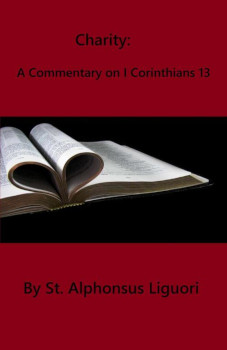








 Follow
Follow


